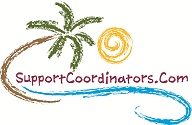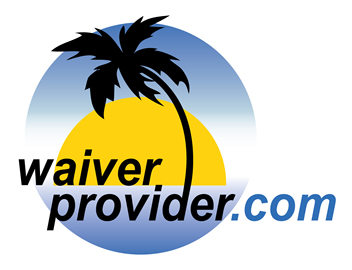*Need More Information?
Call (727) 841-8943 or Email WaiverInfo@aol.com
- SupportCoordinators.Com
-

Not Just For Support Coordinators!
Resources= Empowerment
We are here to help support coordinators, providers, families, & self advocates. -
Every person that gets on the Florida medicaid waiver program receives a service called Support Coordination, which is a form of case management. Support Coordinators assist individuals and their families to access supports and services on their own.
-
This site provides easy access to many valuable resources.
NEWS From Aaron Nangle
Tweets by @WaiverProviderQuestion: What Is Support Coordination?
Answer: "Support coordination is the service of advocating, identifying, developing, coordinating and accessing supports and services on behalf of a recipient, or assisting the recipient or family to access supports and services on their own. These services may be provided through waiver and Medicaid State Plan services, as well as needed medical, social, educational, other appropriate services, and community resources regardless of the funding source through which access is gained."
Question: How Do I Become A Support Coordinator?
Answer: When you are ready to become a provider, Call WaiverProvider.com at 727-841-8943. We can provide you with ALL of the information and documents you need to make this happen. We can provide you with the tools to start your own company or work for an agency.
Question: What Documents Need To Be In The File Before I Bill?
Answer: The following Documents must be current, and filed in the central record PRIOR to billing. The support coordinator is responsible for completing these forms and reports.
- Support Plan
- Personal Outcomes Measures " Ended on May 2010"
- The Department Approved Assessment "QSI is now done by the APD staff."
- Waiver Eligibility Worksheet
- Approved Cost Plan
- Service Authorizations For All Approved Services
- Progress Notes.
What Are The Minimum Contact Requirements
Answer: The following is a list of minimum contacts required for billing. All contacts must be documented by progress notes.
- At least two billable contacts must be made each month, documented by progress notes.
- Home Visits are required every three months for people living in group homes, and every six months for people living in family homes.
- Face-To-Face Visits are required every month for people living in group homes, and every three months for people living in family homes.
The Developmental Disabilities Waiver Services Coverage and Limitations Handbook states, " Waiver support coordinators should not assume that meeting the basic billing requirements will necessarily result in a successful monitoring review and approval to continue services."
Children that live in family homes and are under the age of 18 receive what is called limited Support Coordination. This requires only one contact per month. Two of the visits per year must be done face to face.
Question: What Is a Billable Contact?
Answer: In order for a contact to be billable, one of the following most occur:
- Help the person to reach support plan goals and/or personal outcomes.
- Monitor health and well being
- Help the person get needed resources.
- Help the person get involved in the community.
- Assist with advocacy and choice.
- Discuss concerns, and follow up on those concerns
Question: What Else Do I Have To Do?
Answer: The Developmental Disabilities Waiver Services Coverage and Limitations Handbook has twelve pages of rules and requirements for support coordination. Listed below are just a few of those "Other" requirements. Support coordinators are expected to meet the needs of the recipient’s receiving services; regardless of the number of contacts it takes to meet those needs.
- Be on Call 24-7, with a back up support coordinator available when you can not be reached.
- Help the person become as independent as possible- educate people about community involvement, independent living, and employment options.
- Connect the person with natural resources. The support coordinator should make every effort to assist a person to use free/natural resources, rather than paid waiver services.
- Monitor the performance and compliance of paid supports. The support coordinator should get all required documentation from providers, and file them in the central record.
- Amendments to the persons support plan and cost plan, as needed.
- Help the person find providers that meet his/her needs.
- Help the person keep their medicaid, and if they lose it, assist them with getting it back.
- Make sure the person is getting needed medical treatments, particularly if they live in a group home or in their own home with supported living.








